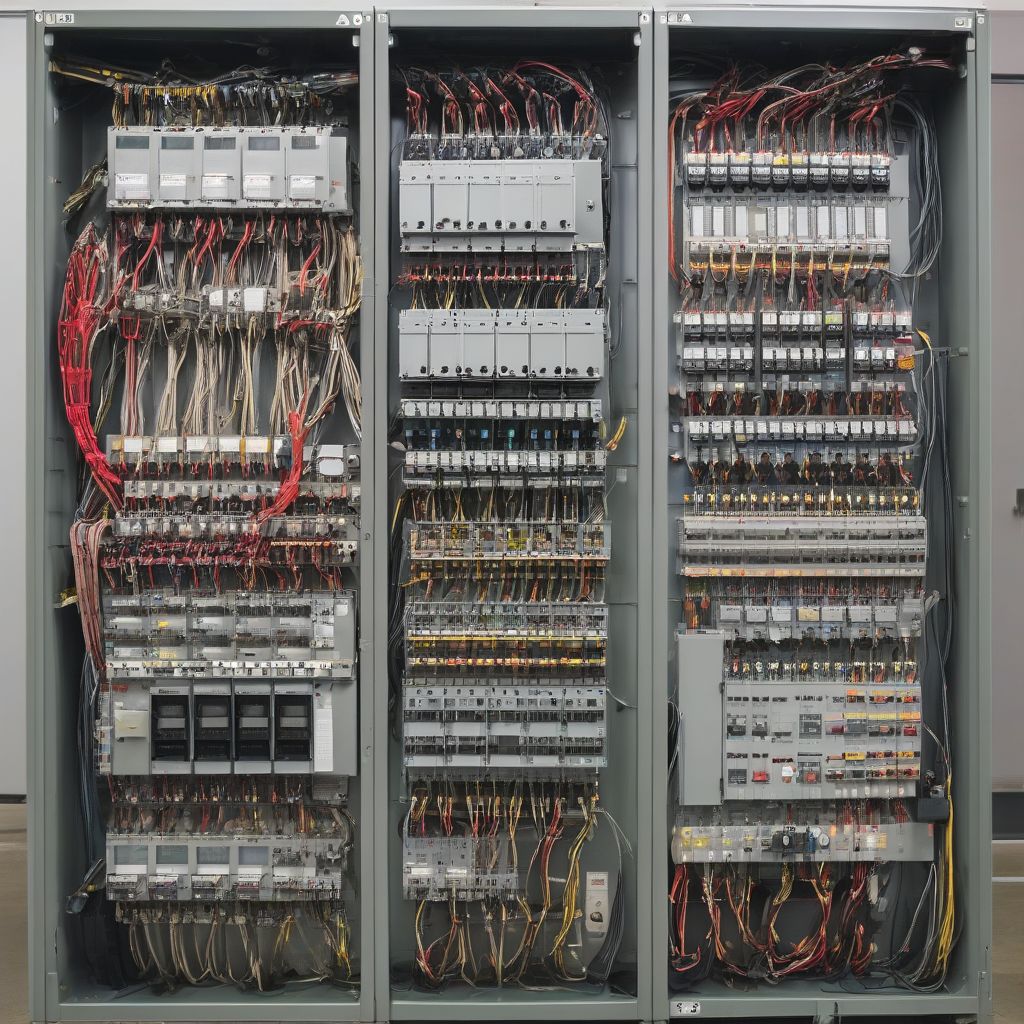The world runs on energy, and increasingly, that energy is electric. From the phones in our pockets to the power grids spanning nations, electrical engineers are the architects behind these complex systems. A degree in electrical engineering is a passport to a dynamic and evolving field, impacting industries far and wide. Let’s delve into the world of electrical engineering, explore its significance, and uncover the exciting career paths it illuminates.
What is Electrical Engineering?
Electrical engineering is a branch of engineering focused on the design, development, and application of equipment, devices, and systems that utilize electricity, electronics, and electromagnetism. It’s a diverse field encompassing a wide range of specializations, from power generation and distribution to telecommunications and computer engineering.
 Electrical Circuit Board
Electrical Circuit Board
Why is Electrical Engineering Important?
Electrical engineering plays a critical role in our modern world, driving innovation and shaping the future in several ways:
- Powering Our Lives: Electrical engineers are responsible for generating, transmitting, and distributing the electricity that powers our homes, businesses, and infrastructure. They are at the forefront of developing renewable energy sources like solar and wind power, paving the way for a sustainable future.
- Revolutionizing Communication: From smartphones and the internet to GPS and satellite technology, electrical engineers have revolutionized the way we communicate and connect. They design and develop the complex electronic circuits and systems that underpin our interconnected world.
- Advancing Healthcare: Electrical engineering is instrumental in developing life-saving medical equipment and technologies. From pacemakers and imaging devices to surgical robots and telemedicine platforms, electrical engineers are pushing the boundaries of healthcare innovation.
- Driving Automation: From self-driving cars and industrial robots to smart homes and automated manufacturing systems, electrical engineering is at the heart of the automation revolution. They design and develop the control systems, sensors, and software that enable machines to operate autonomously.
Common Questions About Degrees In Electrical Engineering
What are the different types of electrical engineering degrees?
- Bachelor of Science (B.S.) in Electrical Engineering: This four-year undergraduate degree provides a comprehensive foundation in electrical engineering principles, covering topics like circuit analysis, electronics, digital systems, and electromagnetism.
- Master of Science (M.S.) in Electrical Engineering: This graduate-level degree offers specialized knowledge in specific areas of electrical engineering, such as power systems, control systems, microelectronics, or telecommunications.
- Doctor of Philosophy (Ph.D.) in Electrical Engineering: This research-focused degree is for individuals seeking to pursue advanced research and contribute to the advancement of knowledge in electrical engineering.
What skills do I need to succeed in electrical engineering?
A successful electrical engineer possesses a combination of technical and soft skills:
- Strong analytical and problem-solving abilities: Electrical engineers often encounter complex problems that require creative and logical thinking to solve.
- Excellent mathematical skills: Mathematics, particularly calculus, linear algebra, and differential equations, form the foundation of electrical engineering principles.
- Strong understanding of physics and electronics: A deep understanding of the fundamental principles of electricity, magnetism, and electronics is crucial.
- Proficiency in computer programming: Electrical engineers use various software tools for circuit design, simulation, and data analysis.
- Effective communication and teamwork skills: Electrical engineering projects often involve collaboration with engineers from other disciplines, requiring clear communication and teamwork.
What are the career prospects for electrical engineers?
The demand for skilled electrical engineers remains high across various industries. Graduates with a degree in electrical engineering can pursue rewarding careers in:
- Power Generation and Distribution: Working for utility companies, designing and maintaining power grids, developing renewable energy systems.
- Telecommunications: Designing and developing communication systems, including wireless networks, fiber optics, and satellite communications.
- Electronics Manufacturing: Designing, developing, and testing electronic devices and components for computers, smartphones, and other consumer electronics.
- Automotive Industry: Working on the development of electric vehicles, hybrid vehicles, and autonomous driving systems.
- Aerospace and Defense: Designing and developing avionics systems, radar systems, and communication systems for aircraft and spacecraft.
The Future of Electrical Engineering
The field of electrical engineering is constantly evolving, driven by technological advancements and the growing demand for innovative solutions. Here are some key trends shaping the future of electrical engineering:
- Renewable Energy: The transition to a sustainable energy future is creating a surge in demand for electrical engineers with expertise in solar, wind, and other renewable energy technologies.
- Smart Grid Technologies: Modernizing the electrical grid to improve efficiency, reliability, and integrate renewable energy sources is another area of growth.
- Internet of Things (IoT): The proliferation of connected devices is driving demand for electrical engineers with expertise in wireless communication, sensor technology, and embedded systems.
- Artificial Intelligence (AI): AI is transforming various industries, and electrical engineers are at the forefront of developing AI algorithms, hardware, and applications.
Conclusion
A degree in electrical engineering opens doors to a world of opportunities, empowering individuals to shape the future through innovation and problem-solving. From powering our homes to revolutionizing communication, electrical engineers play a pivotal role in shaping a brighter and more sustainable tomorrow. As technology continues to advance, the demand for skilled electrical engineers will only continue to grow, making it a rewarding and future-proof career path for those passionate about science, technology, and making a tangible impact on the world.

